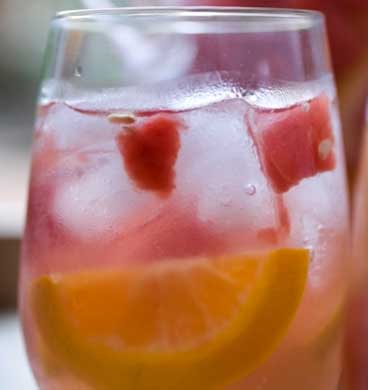It’s time to address America’s secret drinking problem—the extra calories we consume in sugar-laden soft drinks, fruit juices, and other beverages.
“Americans are getting fat because they’re consuming about 300 calories a day more today than they did 30 years ago,” says Dr. Walter Willett, chair of the Department of Nutrition at the Harvard School of Public Health and professor of medicine at Harvard Medical School. “About half of that comes from soda, fruit juice, and other sugary drinks.”
Childhood obesity rates have tripled since the early 1970s, and about seven of 10 adults are now overweight or obese.
“The house is on fire,” Dr. Willett tells the Post, “The evidence is now clear that sugary drinks damage our health. These beverages are a major contributor to our national epidemic of obesity and increase the risk of diabetes and heart attacks. Now is the time for action: parents, schools, employers, and governments at all levels have important roles to play in reducing consumption of these dangerous drinks.”
Willett and colleague Lilian Cheung, director of the department’s Nutrition Source Web site (hsph.harvard.edu/nutritionsource), are urging adults and children to quench their thirsts the natural way—with water.
And because many Americans will need some help to shift away from their super-sugary tastes, the Harvard nutritionists are calling on food scientists to create new drinks containing no more than 1 gram of sugar per ounce (about 70 percent less than most soft drinks today) and without artificial sweeteners.
“Diet drinks leave us conditioned to a high level of sweetness,” Dr. Willett explains. “For people trying to cut down on full sugar beverages, I regard these as a ‘nicotene patch.’ They may be useful but are not the ideal.”
Willett and Cheung also endorse a national campaign to reduce the consumption of the sugary drinks and propose that beverage companies be instructed to list the total number of calories per can rather than per serving on a container of soda or other drink.
Healthy beverage alternatives that you can prepare at home include infused water, tea, sparkling water with a splash of juice, and low-sodium broth or miso. The following recipe for a refreshing fresh fruit cooler with no added sugar is from the Nutrition Source Web site:
Fresh Fruit Cooler
(Makes 1 serving)
- 1/2 cup ice
- 3/4 cup of sugar-free sparkling water
- 1/3 cup of melon or berries
- Chopped mint leaves or citrus slices (optional)
Place ice, sparkling water, and fruit in a blender. Blend until slushy, pour into a glass, and garnish with mint or citrus slices.
(18 calories per 12-ounce serving)
Chair of the Department of Nutrition at the Harvard School of Public Health and professor of medicine at Harvard Medical School, Dr. Willett is an internationally renowned nutritionist who has published more than 1,200 scientific articles on diet and disease.
Become a Saturday Evening Post member and enjoy unlimited access. Subscribe now



